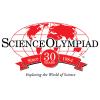The Digest for this Thursday will examine the use of big data in helping to improve the diagnosis and treatment of cancer patients, a look at the future interactions between MOOCs and tuition based online courses, the impact that parents reading habits can have on their childrens desire to read, the various Common Core based tests that are emerging, and some minor changes to the Common Core and teacher evaluation systems made by the Ohio Senate.
Recent posts
The Digest for today will highlight the role that big data is likely to play in heldping disadvantaged students learn better, Havard's push to expand its use of MOOCs and online courses, Staples pilot project to bring 3D printing services to its stores, a look at the connection between student debt and administrative pay, and a professional skills MOOC app.
Tuesday's Digest takes a look at a group of students, parents, and teachers advocating for a change in the zero tolerance towards violence policies in Ohio, the impact that big data is having on hiring practices at major companies, a call for the Dept. of Ed. to update its rules for discharging student loans, an effort by Ohio to create a one stop website aimed at helping people pick a career, and the trends of school investment in technology.
Each library conference has a different feel, which is usually determined by the number of attendees. The bigger the conference, the broader the discussions and less detailed the presentations. Recently, two OhioLINK co-workers and I attended the Innovative Users Group (IUG) conference in Detroit, MI. Even with the size of 1000+ attendees, topics focused on workflows, processes, and system implications of proposed changes, and many presentations took a walkthrough approach.
The Digest for this Monday takes a look at the outlook for recent college graduates in a world with more uncertaintity than ever, a California program that is promoting the benefits of STEM education to young girls, the Ohio jobs report for April, a move by Missouri to begin the process of developing new academic standards to replace the Common Core, and the improtance of having accurate data when using big data in health care.
In 2011, at the Techonomy conference in California, Google Executive Chairman Eric Schmidt made a bold statement. “Every two days now we create as much information as we did from the dawn of civilization up until 2003. That’s something like five exabytes of data, he says. Let me repeat that,” he said. “We create as much information in two days now as we did from the dawn of man through 2003.”
For today's Digest we will highlight a new search engine that will help federal and state agencies improve their ability to provide data to citizens, a look at a new bill that would expand the investment in public-private manufacturing partnerships, the importance of orientation for students enrolled in online courses, the addition of a 3D printer to the Cincinnati public library, and a look at some of the roadblocks that need to be overcome to build an exascale supercomputer.
Today we will take a look of the state of school diversity 60 years after Brown v Board of Education, a new study that is raising concerns about how fair classroom observations are, a look at the job market for this years graduating college students, a school libraries unique move to provide 3D printers, and a discussion of how to resolve the issue of high cost college textbooks.
Today we look at a new supercomputer system being built that will help in big data research, the expansion of dual credit STEM programs at high schools, New York's largescale effort to expand its online course offerings through its SUNY schools, and a new study that is offering insights into just how well students retain information learned from MOOC's.
The Digest for today will take a look at some of the applications being developed at college campuses that rely on the Internet of Things, a new set of performance ratings for the Ohio schools involved in the data scrubbing scandal, a new open data law that will improve government accountability, a major investment into creating a public cloud in Massachusetts, and robots at the Chicago Public Library.
Today's Digest takes a look at a new grant program in Utah aimed at improving STEM education, the forecasted increase in federal spending on big data related expenses, a bold move from the state of Wyoming in rejecting to use a new set of sceicne standards that have been developed for K-12, a look at why many manufacturing firms should and are considering moving factories back to the U.S., and a proposal from the universities in Ireland to create a unified brand for selling online courses.
Astronomical objects in the space beyond the earth are fascinating and enigmatic. We belong to the planetary system of our home star, the Sun, which is our source of energy on Earth. The Sun is a gigantic ball of hot plasma, the fourth and most prevalent state of matter (over 99% of matter in the universe is plasma, not solid, liquid or gas). It is very important to know how the Sun generates its energy, how that propagates as radiation, what are the solar constituents and elemental abundances, and what are the plasma conditions throughout the Sun.
Today we will look at a unique teacher apprenticeship program that is helping mid-career professionals become teachers, a new report that will provide guildelines to help schools improve the efficiency of their spending, the school levy results from Tuesday's primary election, new funding from the Board of Regents to develop workforce training programs, and efforts from some of Ohio's school districts to expand their vocational education offerings.
The Digest for today looks at the increasing amount of time students spend taking and preparing for standardized tests, a series of new online courses to be taught by the Smithsonian Institute, a new supercomputer that will be owned and operated by a collaboration of colleges and private companies, Google's pledge to stop scanning student emails for advertising purposes, and an open letter from renewable energy companies discussing their impact on the state's economy.
There are several reasons why an organization choses to move forward with using virtual machines. The driving force in the decision process for many organizations is money – or more specifically – the expected savings of money. Unfortunately, if this is the sole decision point for using virtual machines, organizations will lose out on the benefits of virtual machines and probably not save any money in the process.
In today's Digest we look at some of the key findings from the White House's Big Data and Privacy report and what these findings might mean for big data. We also look at a new Ohio bill that will provide clearer standards for how to award college credit to returning veterans, the impact that the improving economy is having on student loans, an international robotics competition for students of all ages, and some best practices for keeping online students engaged in thier coursework.
South Carolina is following Indiana's lead and is working on a bill that will remove the Common Core standards over the next year. In NYC the MOOC providor Coursera is partnering with the library system to provide space for MOOC discussion groups, A major diversity gap between teachers and students has been found, a Northeast Ohio school district is creating a new STEM project based school, and Race to the Top's impact on education is looked it.
The digest for today we examine a new way at looking at MOOCs low completion rates and how these low figures may not represent how effective MOOCs actualy are, a new grant program for minority students pursueing STEM degrees that is funded by the Air Force, the addition of an HPC cluster to help researchers at Rutgers University, the role that major industrial firms are playing in the growth of additive manufacturing, and a new breakthrough in the quest to develop the first fully functional quantum computer.
The digest for today we look at a new law in Georgia that will provide full tuition coverage for some students at technical colleges, Google's progress towards developing a fully autonomous vehical, a new hands on science lab at the University of Maryland that will also serve as a research lab for the Howard Hughes Medical Center, a new supercomputer contract between Cray Inc. and the Dept. of Energy, and considerations one should take when looking at online tutoring.
The digest for today examines the potential impacts that big data could have on the poor, a look at what colleges can do to improve the way STEM subjects are taught, a study that shows why students have not adopted tablets as the industry had predicted, the addition of a job application kiosk to the Queen's library, and a $30 million investment from Chevron to improve project based STEM education.
The digest for today highlights the use of big data by small businesses to improve customer loyalty, the collapse of a major ed-tech start-up, a festival that celebrates science and engineering achievements, a scholarhip program funded by the Cuyahoga County Council, and a panels thoughts on how to improve STEM education at the middle school level.
The digest for today look at efforts by the U.S. Dept. of Education to improve teacher training, the rising cost of tuition at Ohio's Public Universities, efforts to improve the efficiency of computers, the increased oversight of charter schools in Ohio, and the issue of attrition in STEM degree programs
- ‹ previous
- 14 of 22
- next ›







